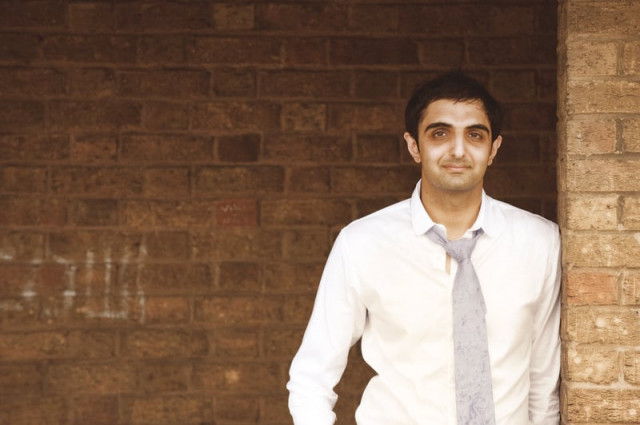Sunjeev Sahota: The write start
Rising young author Sunjeev Sahota reflects on his creative journey

During a recent visit to Karachi to attend a workshop on translation, organised by the British Council — where his much-anticipated second novel The Year of the Runways was being translated from English to Urdu — the 33-year-old Londoner addressed the hugely contentious subject of terrorism in his debut novel and what inspired him to write in the first place. “I really don’t know what made me pick up this (Midnight’s Children) one book. Either it was the fact that it was set in India, or [that] it was published in the year I was born,” says Sunjeev, recalling how he came across the book while waiting at Heathrow Airport to catch his flight to India. “All I remember is [that] as I went to visit my family farm in Jalandhar, India, I just kept on reading.”

Upon returning from India, Sunjeev continued to read, particularly fond of the works of Russian writers such as Dostoevsky, Chekov and Tolstoy and a few Irish writers, but it wasn’t until the 2005 London bombings that he actually gave writing a serious thought. “I thought about the perpetrators and many things crossed my mind, particularly the fact that I too was the child of an immigrant [couple],” he says. Sunjeev’s debut novel is, therefore, based on a young British-Pakistani’s struggle for identity. Set between Sheffield, Pakistan and Afghanistan, the book explores the cultural transition immigrants go through.
The book’s protagonist Imtiaz mirrors Sunjeev’s own desire to feel a sense of belonging. But unlike the author, Imtiaz’s deep religiosity channels those feelings to destructive ends. “The character’s [devoutness] altogether felt like an interesting psychology to penetrate into,” says Sunjeev, but denies that terrorism and identity issues have become synonymous with South Asian writers. “South Asians are [also] writing about economies and the [growing] gaps between the rich and poor,” he adds.
In The Year of the Runways, he builds on the sense of belonging that was depicted by Imtiaz in his first novel. “It is all about illegal immigrants and living away from home and how that features in their lives,” he says. Adding to the possibility of exploring other themes, such as romance, in his future writings, he says, “It’s already there in the pages (of my first novel), between a man and a woman and between parents and children. Somewhere between the lines you will sense it.”
The modest writer describes the overwhelming response to his first novel as “thoughtful and generous” and admits that he was surprised, albeit pleasantly, when he received an award for it. “It’s really a confidence boost and it certainly made me feel good about my writing,” says Sunjeev, adding that the award opened new avenues for writing. According to Salman Rushdie, who was on the panel of judges, Sunjeev’s talent was visible on every page and he looks forward to reading more from the blossoming writer.
As his trip to Karachi drew towards an end, Sunjeev described the city as one that was “balanced precariously between confidence and a certain thoughtful isolation.” And one can’t help but wonder how the multi-layered cosmopolitan would fare if it were to feature as a muse for one of his future writings.
Saadia Qamar is a reporter for The Express Tribune.
Published in The Express Tribune, Sunday Magazine, November 2nd, 2014.


















COMMENTS
Comments are moderated and generally will be posted if they are on-topic and not abusive.
For more information, please see our Comments FAQ